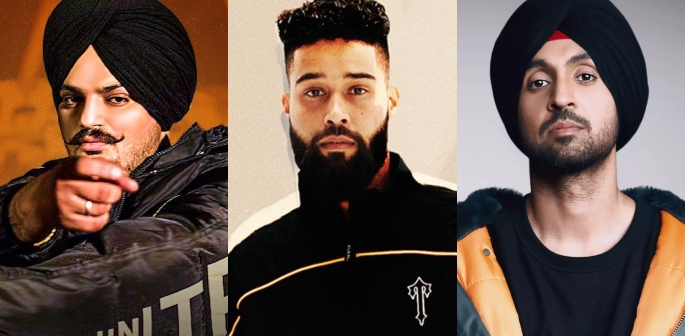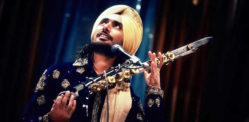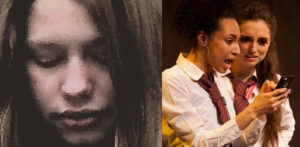"I prefer music in languages I can understand"
Punjabi music has been a focal point of music within Birmingham since the 70s and 80s.
With a large Punjabi community in the city, the music has become a staple of cultural events and celebrations.
Birmingham’s students are no strangers to the catchy rhythms and lively beats of Punjabi music, and many have become avid listeners and even enthusiasts.
Every year, there would be Punjabi-themed events and night outs where students could listen and dance to their favourite artists.
Dance floors would fill up with Bhangra enthusiasts and many of these traditions still carry on today.
However, although Punjabi music is an integral part of the city’s cultural landscape, does it hold the same weight it once did among students?
After all, these are the future generations of the UK so will Punjabi music continue to be passed down within households, or will it transition out of favour?
Many of these individuals are now brought up surrounded by more pop, RnB and hip hop music.
Therefore, has the popularity of Punjabi music died down amongst a community that couldn’t get enough of it?
DESIblitz spoke to students across Birmingham’s universities to gather their thoughts and outlook on the genre.
Birmingham City University

Birmingham City University (BCU) has a massive collection of British Asian students and puts on a range of events to cater to them.
As well as their dedicated societies, they also have Punjabi musicians who visit the university. In 2022, Satinder Sartaaj visited the campus ahead of his sold-out UK tour.
Despite BCU’s acknowledgment of Punjabi music and the role it plays within Birmingham, are its students still lovers of the genre?
We spoke to a range of individuals who shared their thoughts. Bhavini Chauhan, a second-year student said:
“I’ll listen to Punjabi music if it’s on or if someone plays it at a party, but I won’t go out of my way to listen to it.
“I feel like most of the songs sound the same and don’t offer anything different. I’d rather just listen to RnB.”
Bhavini’s friend, Satpal Singh also gave us his thoughts:
“I only recently started listening to Punjabi music after Sidhu passed away. I don’t know if that sounds bad but because his death was so huge, his songs were unavoidable.
“But after hearing them, I thought ‘oh I actually quite like this’. So, I listened to him more and more and then got put onto other artists.”
It’s no surprise that Sidhu Moose Wala’s death sent shockwaves throughout the world. Evidently, it actually promoted more people to listen to Punjabi music.
Sharing a similar view was Simran Kaur, a first-year student who expressed:
“A lot of my male friends played Sidhu at pre-drinks before going out and I liked the fact the beats he used were like the ones you hear American artists use.
“I’m a big fan of Drake and Tory Lanez so hearing those sounds in his music made me like Punjabi music more.
“Not gonna lie, I don’t know what many other artists except AP Dhillon but he’s also good.”
First-year student, Rajiv Birdy, went on to emphasise this latter point:
“AP, Diljit, Karan Aujla and more are making Punjabi music for a younger crowd. I think that’s what we like the most.
“It’s definitely popular in our circle and I think a lot of other students would say the same.
“You can dance to these songs but some songs you can play when driving at night, chilling with your girl or in the gym.”
Even though many modern Punjabi artists are beginning to use more western style sounds in their projects, it hasn’t quite hit home with some other British Asian students.
Arun Chowlia, a third-year student revealed:
“I don’t think Punjabi music is as popular as it once was. Years ago, it was all around Birmingham – in clubs, bars, and restaurants.
“But now, places need dedicated events to play that type of music. I have listened to Punjabi music but don’t see the attraction.
“You may find one gem of a song but then there’ll be another 100 that copy that style.”
“I just feel like a lot of the artists aren’t experimental enough and may use hip hop beats to try and seem more unique but it’s actually repetitive.”
Meera Sohal, a PhD student shares a similar opinion:
“I’m not a fan of Punjabi music, to be honest. I did like it as I was growing up because it sounded fresh and raw.
“It’s become too commercial where artists are forgetting the foundations of what makes a good Punjabi song.
“I’m all for artists doing something new, but in a way that sounds different. Hearing Punjabi vocals on an American or ‘English’ instrumental isn’t new anymore – that was done ages ago.
“I also hate this whole hype around AP Dhillon. His best songs are the ones with Gurinder Gill and that’s because of him, not AP.”
Meera raised an interesting point in how Punjabi music is too commercial which would mean that it’s a mainstream genre of music.
Even though that’s not entirely true, is Punjabi music becoming a trend rather than a decorated style of music?
We posed this question to a couple of BCU students. Manny Sahota said:
“I think it’s growing in popularity and it’s not really a trend, I see it as more mainstream artists paying attention to it.
“Maybe they want to give Punjabi artists a bigger platform, which I’m all for. But, it’s what those artists do with that platform that will make the music more popular or not.
“As of now, maybe these American and Punjabi collabs are for clout and not to produce great music.
“For example, when Tory Lanez and Diljit made their song, it was great at the time but it’s not a legendary piece of music at all.”
Manny’s girlfriend, Harpreet, also gave us her view:
“I reckon a lot of Punjabi artists think collaborating with a rapper or English singer will mean their music becomes amazing. But it doesn’t.
“It’s why I don’t listen to Punjabi music, it becomes generic and I don’t feel like it hits all your emotions like other genres do.
“I’m not hating, it’s just Punjabi music has lost its realness.”
It’s clear that BCU students have a lot of differing opinions when it comes to Punjabi music.
Whilst some agree that it’s still popular among students and Birmingham in general, there are others who think it’s losing its appeal and identity.
Aston University
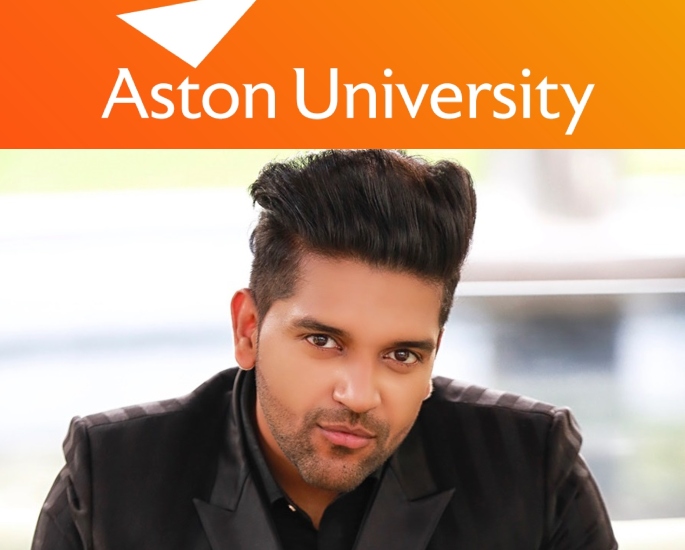
Aston University (Aston) is based in the heart of Birmingham and students are exposed to many Punjabi-themed events such as Bhangra shows, concerts and society-led night outs.
However, one of the most interesting and surprising things DESIblitz found when talking to Aston students is some of them don’t listen to Punjabi music because of the language barrier.
Whilst some appreciated the sound of Punjabi songs, some students aren’t a fan because they can’t understand the lyrics.
Shahid Khan, a second-year student has Punjabi-speaking parents but says he never manage to learn. Therefore, Punjabi songs have no appeal to him:
“I’ve tried listening to Punjabi music before, but I just can’t get into it because I can’t understand the lyrics. I feel like I’m missing the whole point of the song.
“I like some of the beats and some of my boys play songs in the car or at their house, but I wouldn’t say I’m a big fan.
“If I understood the lyrics then I’d probably feel much different.”
Aarti Shah had a similar outlook:
“I’m not a big fan of Punjabi music because I can’t understand the words, so it just sounds like noise to me.
“I prefer music in languages I can understand so I can connect with the lyrics.
“My family finds me a bit weird because I’m an English and Spanish student so I actually listen to more Spanish songs than I do Punjabi.”
Similarly, Raj Singh says he would find Punjabi music more popular if he could understand Punjabi:
“I only understand a few Punjabi words and can probably make out some sentences.”
“But I don’t want to listen to music and drive myself crazy trying to analyse each lyric and piece together what the artist is saying. Music is supposed to be fun not like an exam.
“I kind of feel that’s why a lot of students may not listen to it nowadays, especially in Aston. A lot more of my mates play hip hop or rap music.
“If someone plays Punjabi music on a night out or something, we look at each other weirdly thinking ‘what the hell is this?’.”
In contrast, Sanjay Patel, a third-year student reveals the language barrier isn’t that serious:
“Don’t get me wrong, I wish I could fully grasp a song’s meaning and interpret the lyrics better, but I still appreciate the music.
“Punjabi music is a lot funkier now and way more modern. If a song makes you bop your head then I don’t see the issue.”
However, brothers Deepak and Rajesh Lodi, both second-year students said they love Punjabi music and despite what others may say, Aston University is a hub for it:
“Obviously not everyone will like Punjabi music, including Asians. But Aston is full of people who love Punjabi tracks.
“Whether it’s old or new, all the classic songs are played across halls. All the popular pre-drink parties play Punjabi music and everyone has a good time listening to it.
“Our white friends also like it too. They’ll throw out some moves and think some songs are better than the British music they listen to.
“To be fair, I feel like Birmingham itself is moving away from Punjabi music.
“You’ll see in the clubs that they’ll play the one Panjabi MC song and everything else is hip hop or afro beats now.”
These intriguing responses show how Punjabi music is still very much a topic of discussion at Aston University.
Whilst the opinions on its popularity are divided, there’s no denying that Punjabi music is still being listened to.
University of Birmingham
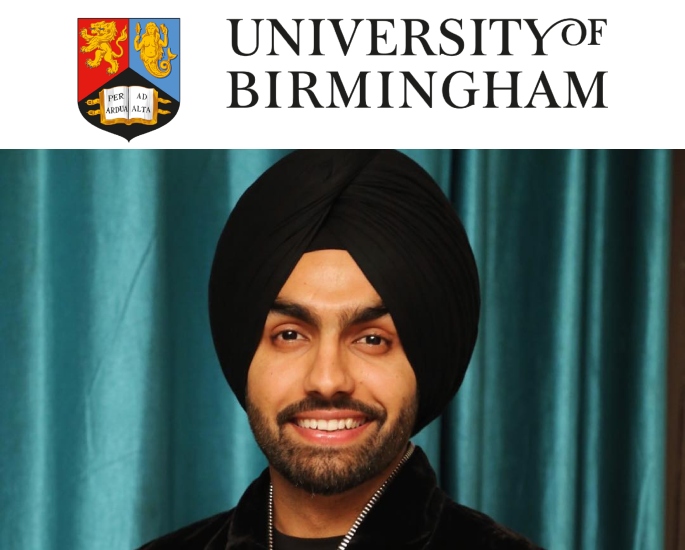
At the University of Birmingham (UOB), students had quite a balanced view of the popularity of Punjabi music.
Whilst some said it was their favourite genre of music, others agreed that it has lost its appeal. Anjali Rai, a third-year student expressed:
“As a Punjabi girl, I find the rhythms and beats of Punjabi music really unique and exciting!
“It’s great to have the chance to explore different artists and how the genre is evolving.
“Punjabi music always makes me feel proud of my heritage! The lyrics are so deeply rooted in Punjabi culture and the messages they convey are always so powerful.”
Navdeep Bansal had an equal view and also stated how Punjabi music helps in all aspects of his life:
“There are so many artists out there that can fit the type of music you like. There are Punjabi ballads, techno songs, rap songs, etc.
“I’ll listen to it every chance I get, I find it hard not to.
“I’ll listen to Punjabi music when in the gym mostly. The lyrics, upbeat tempo, and beats really help me push through a tough workout.”
We also spoke to Jaspreet Kaur who said she got introduced to Punjabi music at university:
“I joined the Punjabi society in freshers and that’s when I first listened to Punjabi music (outside of weddings).
“I signed up to the society to make some mates, not get into music. But, once you start listening to the songs and artists more, you become closer to your culture.
“It also made me feel closer to my parents and we had a shared passion in life.
“So, I’d definitely say it’s popular – I mean we have hundreds of people trying to sign up to Punjabi soc, Bhangra soc, etc – all of these societies take pride in Punjabi music so you do the maths.”
Similarly to Jaspreet, Neelam Sharma also agrees that Punjabi music has had a great effect on students and that’s what makes it so popular:
“Punjabi music never fails to uplift my mood!”
“The fusion of classical instruments and modern beats is simply amazing. Listening to Punjabi songs is my go-to stress buster after a long day at uni.
“It also brings people together. Every time I go to uni events, there’s always Punjabi music playing somewhere on campus.
“It has this energy that’s unbeatable and loads of students, both Asian and non-Asian get attracted to wherever the songs are playing from.”
However, Rohit Gupta, illustrates that whilst UOB has a community of Punjabi music lovers, it has lost its appeal due to mainstream music:
“I can only talk for myself but I don’t hear Punjabi music as much on the radio or on streaming services as I used to, so I don’t think it’s as popular as it once was.
“Maybe it’s because there’s so much new music coming out all the time, or maybe people are just moving on to other genres.
“It seems like a lot of the big hits were from a few years ago, and since then there hasn’t been as much of a buzz around the genre.”
Anil, a student rep, also had a similar outlook:
“There are dedicated radio stations promoting Punjabi music but I feel like, during the 00s, songs were in and amongst mainstream genres.
“Everything is very separate and except for a handful of big artists, which other Punjabi musicians are really out there?
“I think some students are holding on to past hits.”
Lastly, Nisha Bains gave her thoughts and explained Punjabi music’s popularity will always be up for debate. However, a reason why she gave up listening to it is that it lost its substance:
“I think the commercialisation of Punjabi music is part of the reason why it’s not as popular as it used to be.
“The focus is more on making money than creating meaningful and authentic music.
“There isn’t as much of a cultural connection to it anymore.
“Even if the artists are talking about important issues, students aren’t really paying attention to it.
“Forget students, even our elders. How many of them really listen to any artists of this generation?
“They’re all holding on to the past musicians because there was more ‘spice’ there.”
There are quite different opinions among UOB students.
Although the acknowledgment of Punjabi music is there and some ears are still tuned in, there’s an underlying view that Punjabi music needs a revamp.
Punjabi music is a significant part of the cultural identity of the Punjabi community in Birmingham.
While some individuals view it as an important aspect of their heritage and a means of cultural expression, others see it as dying out.
Despite these contrasting opinions, it is clear that Punjabi music has a strong following and influence.
Whilst Birmingham students have some interesting and unique opinions, it’ll be fascinating to see if universities across the UK share the same perspectives.




















































